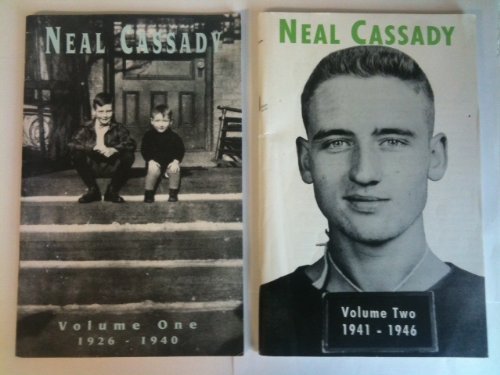Fanfare for the Workingman’s Man
By Mark [Filed originally March 29th, 2011]
Joe Bageant passed away a couple of days ago at age 64. Most likely you are saying “Joe who?” For those of us who haunt his site or have read his books, life without more of Joe’s writing is a huge blow. Just one reading of his seminal work, Deer Hunting with Jesus where he explores the hassled life of the working class of Winchester, Virginia convinced me that he was in the top dozen best authors I have ever read. If you read Deer Hunting with Jesus, you will find that the book will haunt you. Never again, if you come from a family of some privilege (and Joe would include middle class people like me as privileged), will you be able to tune out the working class around you.•
Before reading the book, I was more likely to tune out the guy who empties the trash in my office, the roofer, the clerk on the express lane at the superstore, or the guy haunting a booth at the gas station. Perhaps I turned away in part because I worked that life for a while and was glad to forget it. I spent my teenage and young adult years in suboptimal employment. The jobs I had back then paid enough to get by, if you lived with Mom and Dad, or failing that didn’t mind depending on public transportation and living in a room in a house with multiple roommates. None of these jobs paid enough to allow you to thrive. My workingman experience was designed to be brief. I wanted better things: a house in a nice neighborhood, a car, an office and enough money to indulge regularly in my passion for the arts.
It was unthinkable that I would be a workingman for life, but plenty of people live this sort of life who are constantly living on the edge. Joe chronicled them because he was one of them, and he knew intimately the world of the redneck. Something very weird though happened to Joe. He became part of a social experiment called The Great Society, served in the Navy during Vietnam, and was the first in his family to go to college thanks to government largesse. In college, Joe had a great awakening. In college he became exposed to a larger world and yet somehow he also remained a redneck to the core. He scraped together a living writing for military journals. Thirty years after he left Winchester, Virginia, Joe decided to move back. In his book, he chronicled the sad decline of the working class there. His writing is so good, so personal that you cannot help but step inside the souls of the working poor white people of Winchester. He wrote with such vividness, such empathy and so poignantly that the book was hard to put down even while it was at once both heartwarming and heart wrenching.
Joe knew what’s what better than just about any person I have ever read. His vision of society was largely nihilistic but fundamentally clear-eyed. After reading his essays it was impossible not to agree with him. Even if you could not agree with him, it was impossible not to be blown away by his prose. His discerning gaze saw everything and pierced through all pretenses. Joe was so totally grounded in real life. In style, his writing was much like Hunter S. Thompson, except Joe carried with him a keen sense of empathy and pathos. Joe didn’t like lots of people including, arguably, people like me cocooned in the safety of the middle class. He seemed beyond hate, but certainly not above disdain and loathing. Those of us in the middle class, but particularly the politicians, lawyers, and stockbrokers of the world he saw either explicitly or implicitly as pimps, who turned the backbreaking work of the working class into unearned wealth in the form of 401-Ks, sports cars and McMansions. He knew that the working class were largely unseen and when seen at all, judged with some disdain and contempt by their “betters”.
I enjoy writing, but I will never be as good a writer on a good day as Joe was on a bad day. Never will I be able to write sentences that grab you like two hands with a vice grip on your throat like these:
Below it all are the spreading pox-like blotches of economic and ecological ruins of dead North American towns and city cores, such as downtown Gary Indiana, Camden, Newark, Detroit — all those places we secretly accept as being hellish because, well, that’s just what happens when blacks take over, isn’t it? Has anyone seen downtown Detroit lately? Of course not. No one goes there any more. Miles of cracked pavement, weeds and abandoned buildings that look like de Chirico’s Melancholy and Mystery of a Street. Hell, for all practical purposes it is uninhabited, though a scattering of drug addicts, alcoholics and homeless insane people wander in the shadows of vacant rotting skyscrapers where water drips and vines crawl through the lobbies, including the Ford Motor Company’s stainless steel former headquarters. (See the works of Chilean-born photographer Camilo José Vergara.) It is the first glimpse of a very near future, right here and now for all to see.
Once you got a taste for Joe’s writing, it grabbed you and you just wanted more. So you haunted his website and you joined Feedblitz so you were quickly notified when he made a new post because you knew it would be good. Only, Joe had to go all mortal on us. Apparently, Joe smoked, some things legal, some allegedly not, and perhaps because he was a child of the 1960s he ingested things that would land him in jail today. Perhaps that is why he spent so much time in Mexico. His lungs were bad, probably a product of smoking, and his habits probably contributed to his premature encounter with the grave. Doubtless, Joe met his maker pragmatically. He might have even been glad to punch his exit ticket. Joe saw, as do I, that mankind is entering a sad, resource-competitive phase likely to bring out the worst in us instead of the best. If he had been able to do so, I am sure he would have had an amazing essay or two about the overreach by Republicans in states like Wisconsin as just more evidence of a nasty class war already well underway.
Sometimes in tons of rock you will find a diamond. Joe was one of those diamonds. He was a glorious accident whose writing touched me (and thousands of others lucky enough to discover him) to the core. If you haven’t read Joe, check out his website as it may not be around forever. And yes, you absolutely must read Deer Hunting with Jesus. Your humanity will stretch in the process and your eyes will open wider than they ever have before. You may find yourself like me, sadly wiser on the ways of the world and appreciative of the workingmen and women all around us who make civilization possible.
Originally: March 29th, 2011 at 08:25pm Posted by Mark | Sociology, The Arts |
Let’s keep this award-winning site going!
| Yes, audiences applaud us. But do you?If yes, then buy us a beer. The wingnuts are falling over each other to make donations…to their causes. We, on the other hand, take our left media—the only media that speak for us— for granted. Don’t join that parade, and give today. Every dollar counts. |
|---|
| Use the DONATE button below or on the sidebar. And do the right thing. Even once a year. |
Use PayPal via the button below.
THANK YOU.
//












